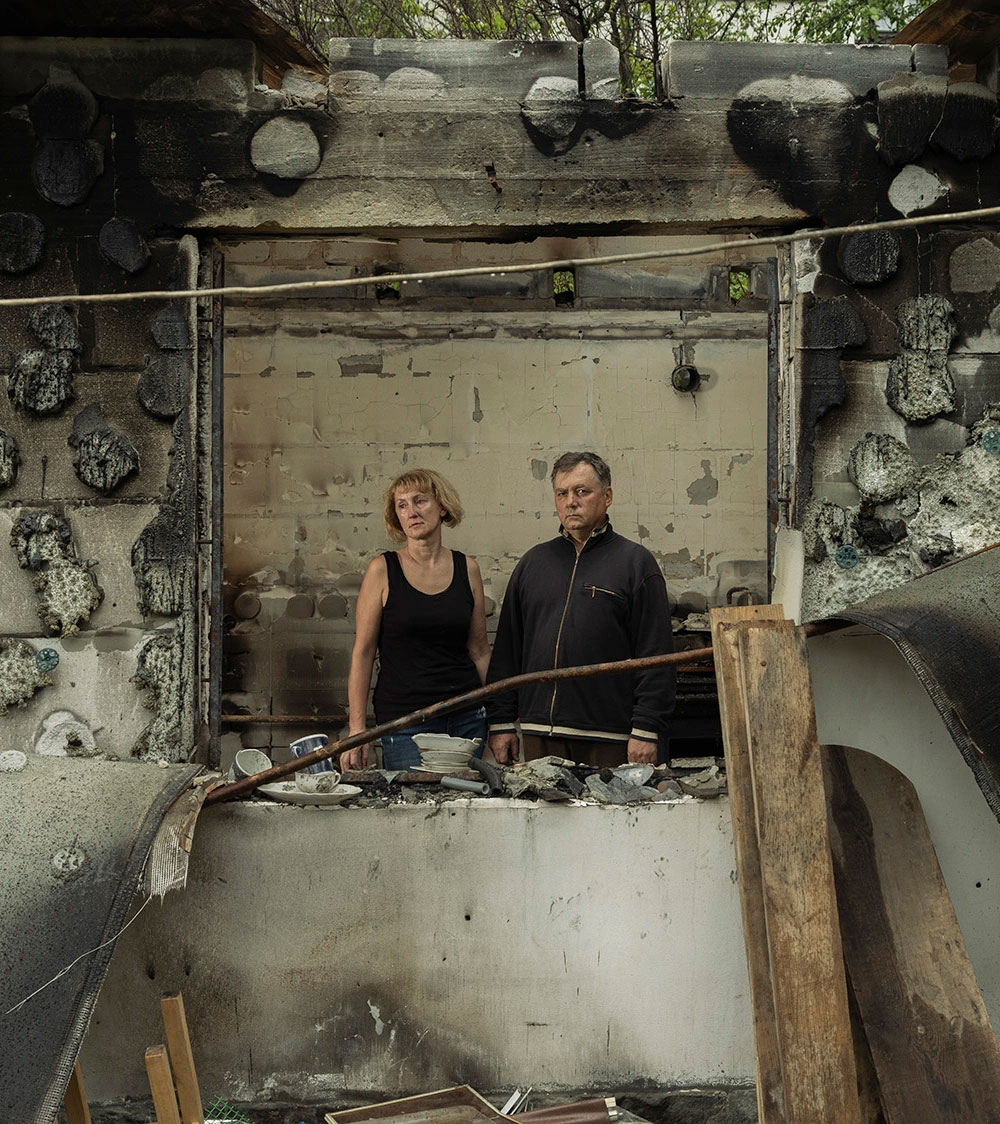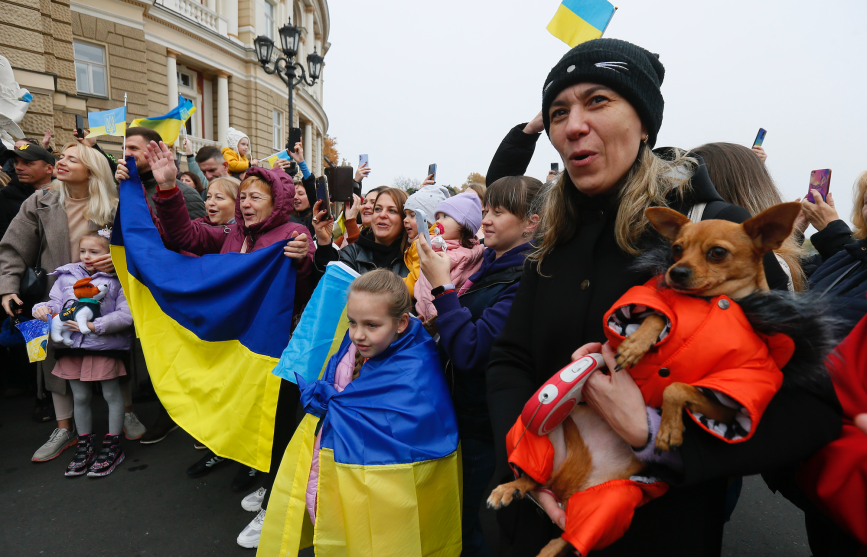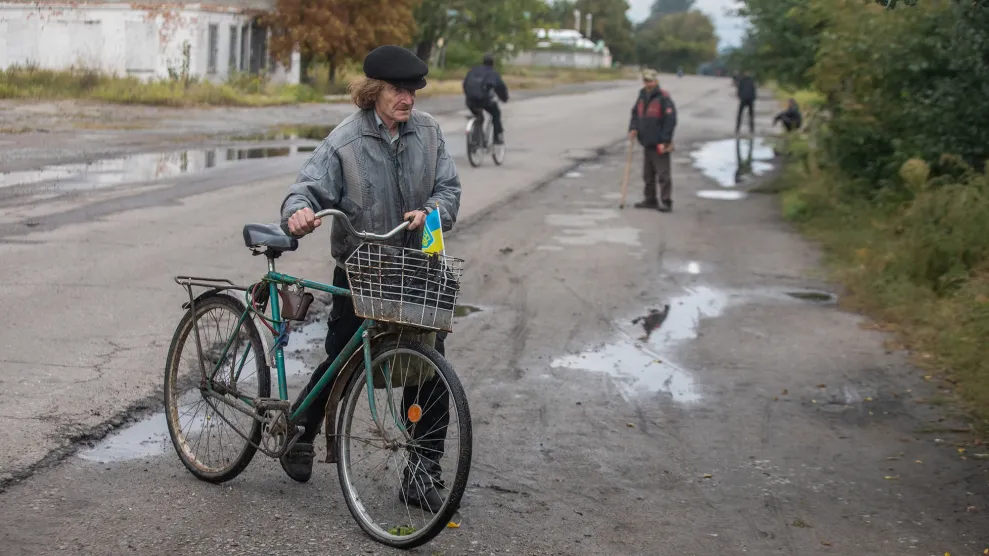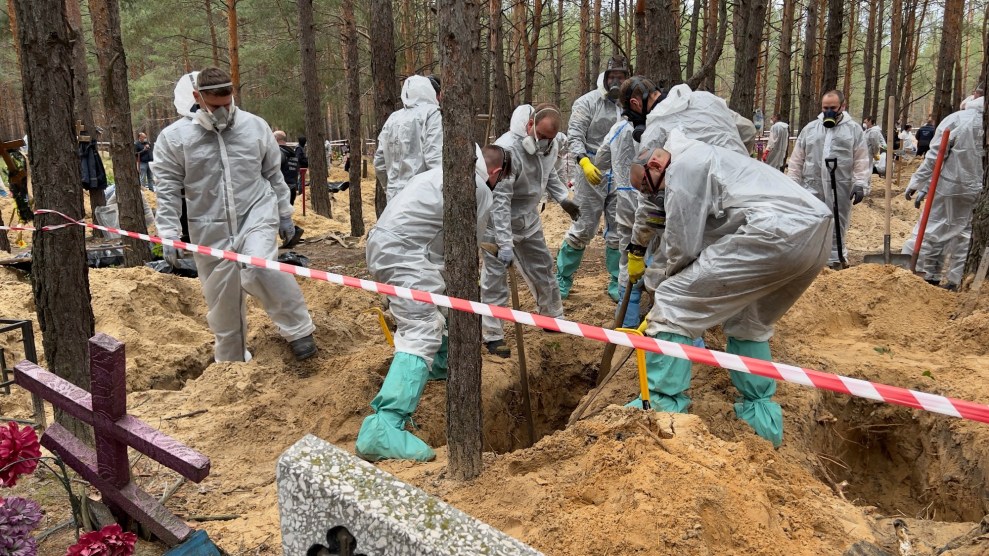It has been nearly 10 months since Russia invaded Ukraine. Horrifying images of people shot in the streets, of mass graves and scorched land, have shown the unprecedented brutality of the Russian Army. More than 100,000 buildings have been destroyed. The peaceful Kyiv suburbs of Bucha, Irpin, and Hostomel, which were, until recently, a haven for middle-class Ukrainian families, have become a sprawling crime scene, where international war crime investigators are pitching tents and establishing mobile command centers.
Those who didn’t leave are getting used to it. And while they continue to fight, many are trying to reestablish their routines, as the war becomes a haunting background to their daily lives. Some who did escape their once-quiet suburban neighborhoods have since returned, hoping their houses would still be standing. What they found was a pile of burned bricks and mortar.
Volodymyr
Volodymyr Husak, 28, was head of his 44-unit co-op building in Irpin. About half the tenants fled on the first day of the war; those who remained slept in the basement. On March 5, the building was shelled, though luckily no one was harmed. It would cost $500,000 to rebuild, an impossible sum for the former residents to raise. The Ukrainian government estimates some 800,000 people had lost their homes by July, and with the war still raging, “I don’t have much hope the government will have the money to rebuild them,” Volodymyr says.
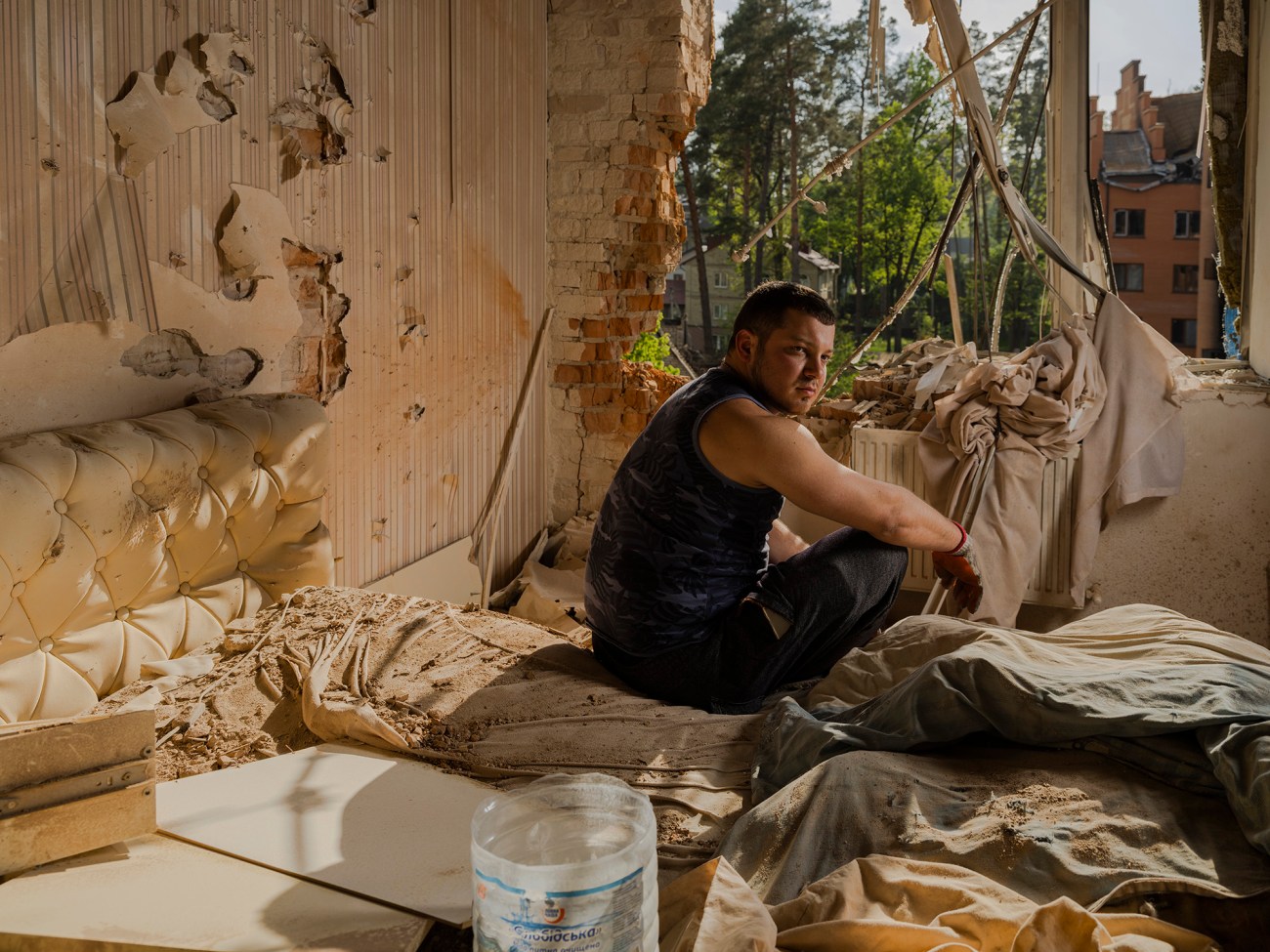
Volodymyr Husak, 28 at one of the apartments in the Dub-ok co-op building in Irpin, Ukraine
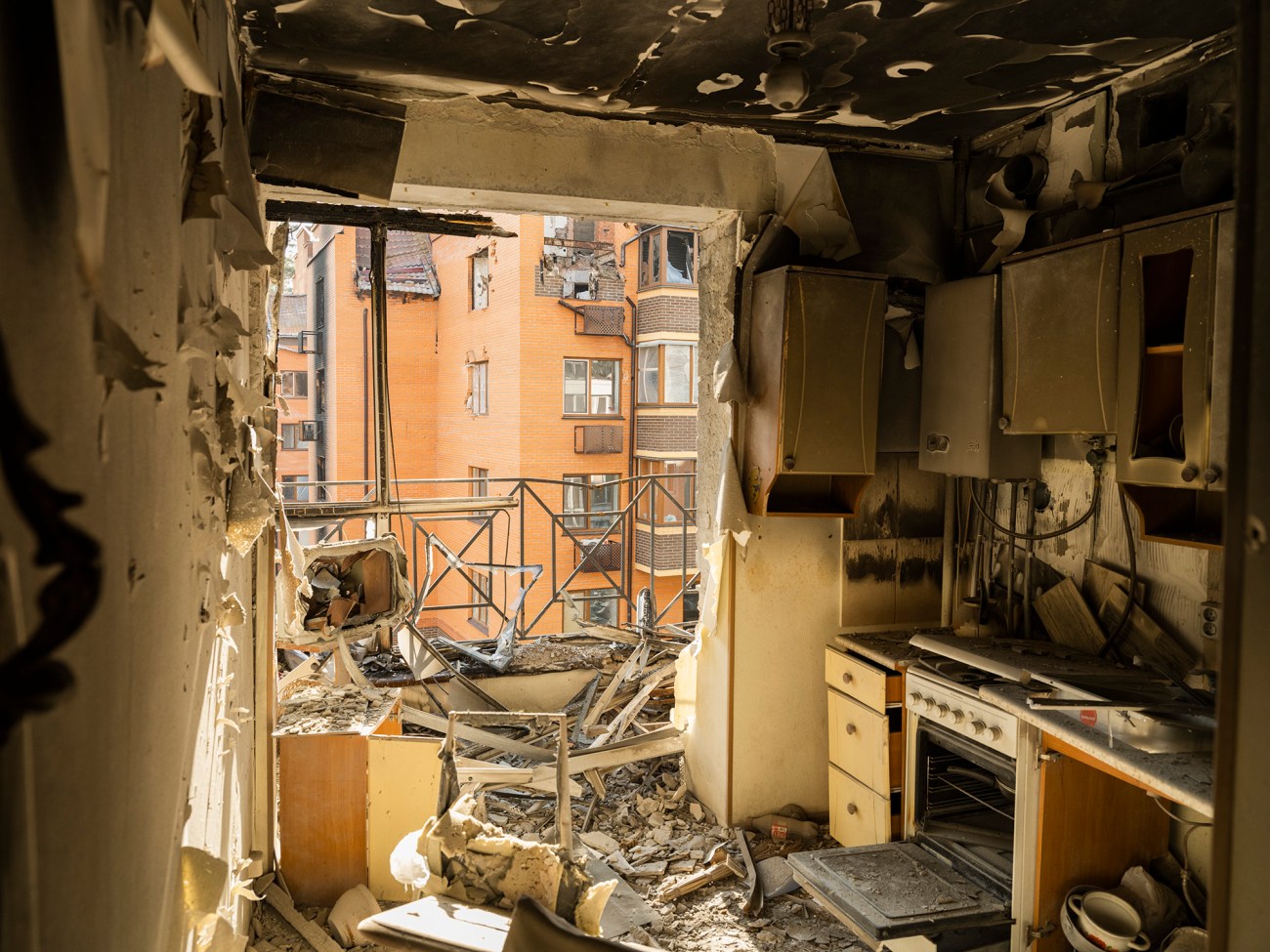
Destroyed Dub-ok co-op building in Irpin, Ukraine
Alla and Andrii
Alla Serebina and Andrii Kuziukov’s suburban hometown of Bucha was popular with young families. The night before the war began, Alla and Andrii were online shopping for a new chandelier. After they fled, images of Russian atrocities in Bucha soon began circulating around the world. “My reaction was complete disbelief,” Alla says. “How is it possible? They live in towns like ours, they have houses, they have families. How could they do this? I’ll never understand that.”
When they returned to their apartment, Alla and Andrii found that a tank round had pierced the window and three walls and ended up stuck between the bathroom tiles. “We wanted to redo the bathroom anyway,” Andrii says dryly.
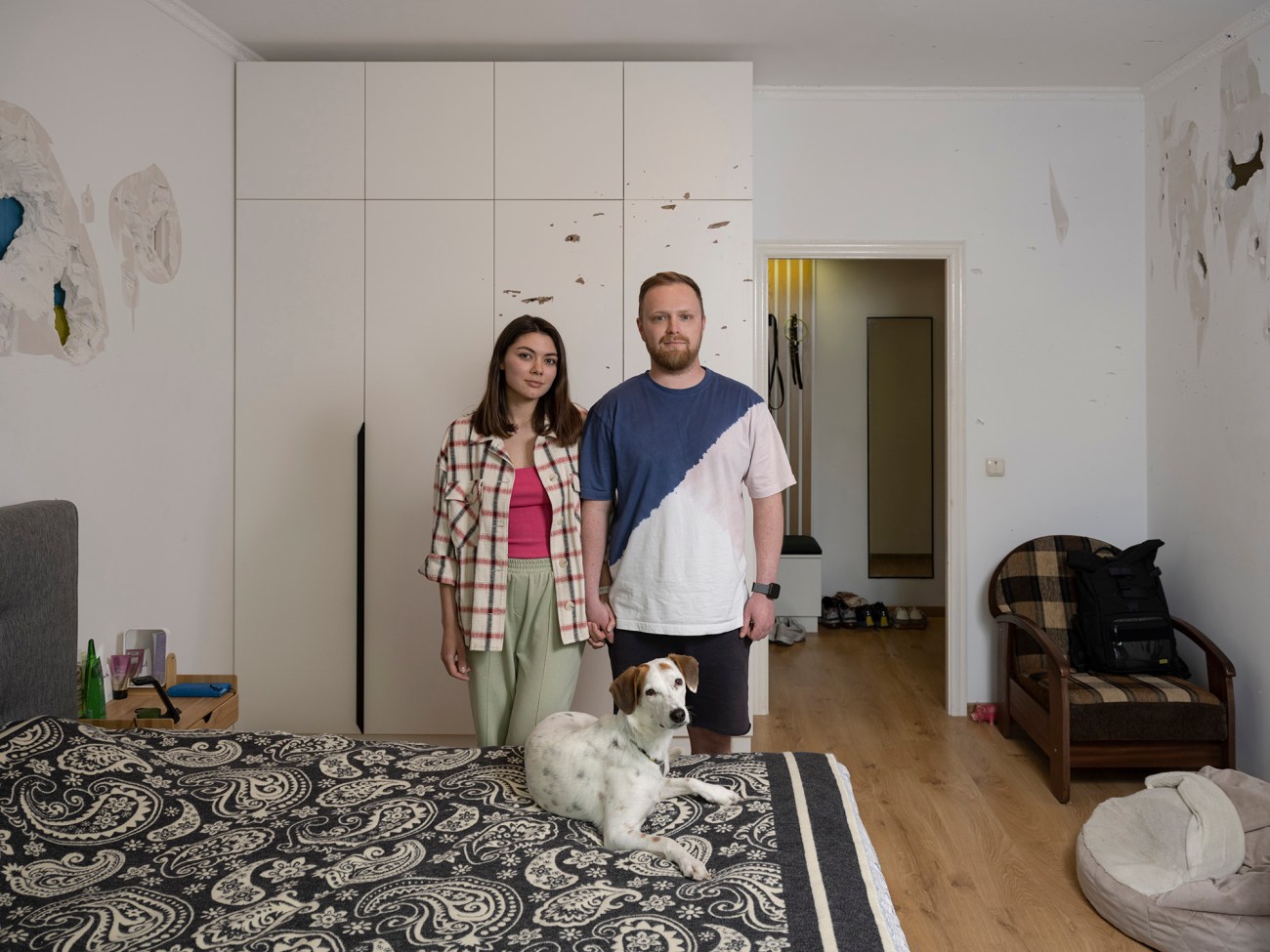
Alla Serebina, 26 and Andrii Kuziukov, 33 with their dog Utah in the apartment in Bucha, Ukraine
Yurii and Darina
Yurii Sikan, 59, and Darina Mikhailishina, 51, returned to their Irpin home with their cats two months after they fled. “They are very confused,” says Darina. “They know the door should be here and a window there, but it’s all gone.” After a neighbor posted the couple’s story on Facebook, a stranger donated a camper and drove it to Irpin. It is now parked in their driveway. Darina, Yurii, and their cats all live in it, hoping to one day rebuild.
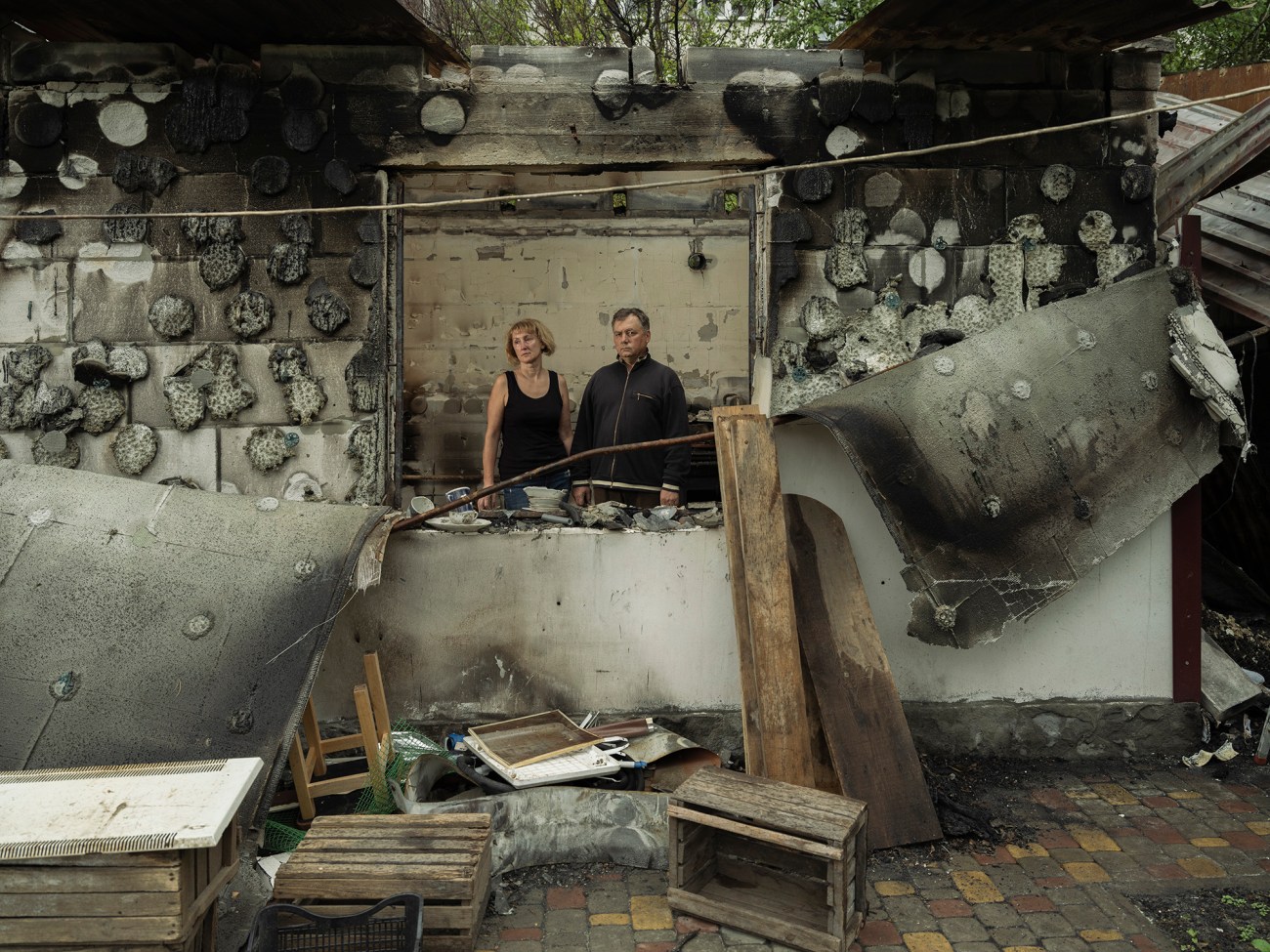
Yurii Sikan, 59 and Darina Mikhailishina, 51 standing in what used to be the kitchen of their destroyed house in Irpin, Ukraine.
Valentyna
Valentyna Briakana, 55, lived in her two-bedroom apartment with her son, daughter, daughter’s husband, three grandchildren, and a recently adopted puppy named Bucks. When ordered to evacuate, they jammed into a car driven by a volunteer and had to leave Bucks behind. He cried, running after the car as it joined the stream of vehicles heading toward Kyiv. It was a crushing heartbreak.
Valentyna visits Horenka to start the process of filing for government assistance promised to those who have lost their homes. “I worked for this place all my life, and it’s gone in one split second,” she says, standing in the middle of the rubble. Bucks, excited every time she visits, leaps from the front door, which now lays mangled on the floor, in what used to be the living room.
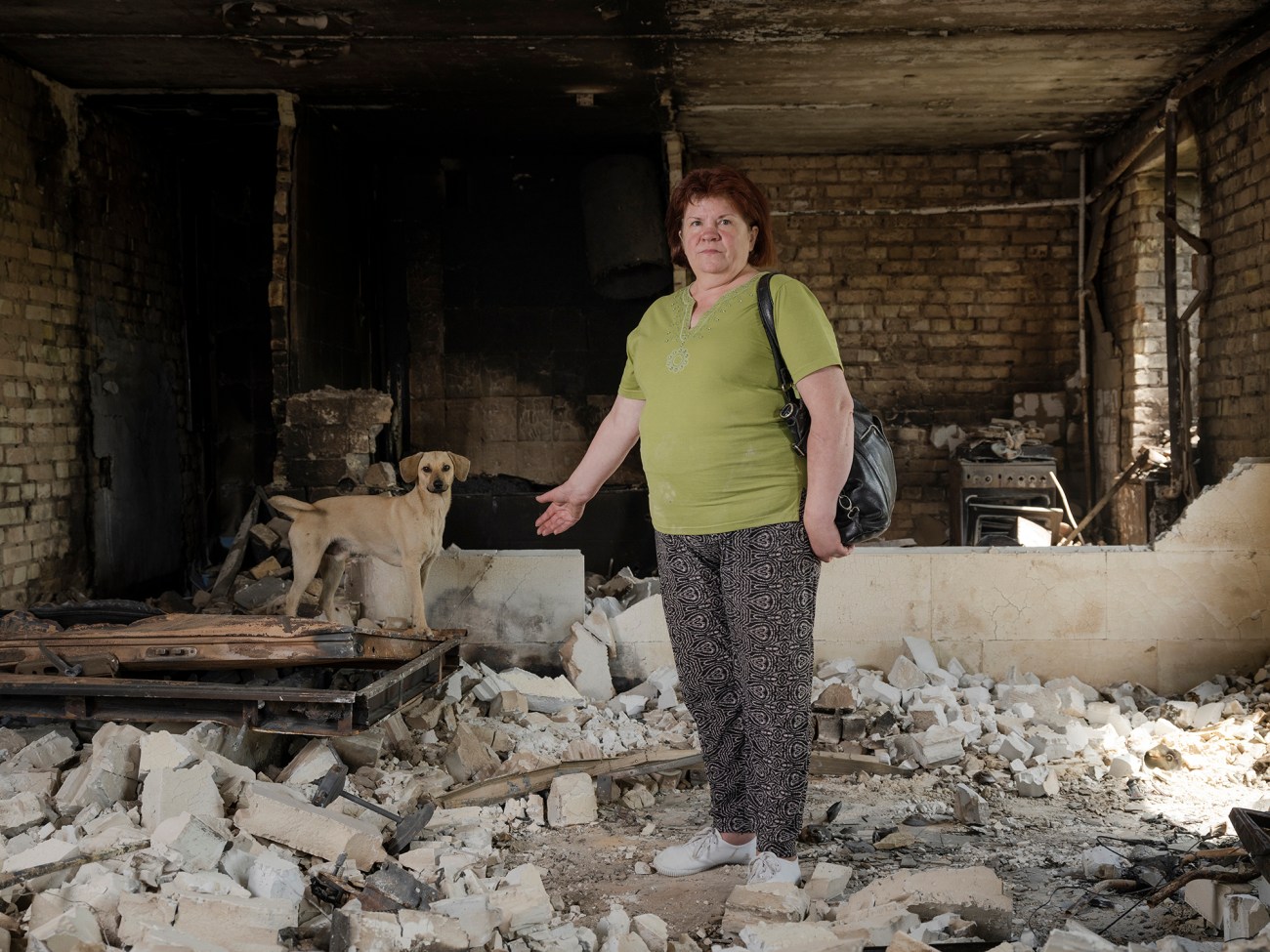
Velentyna Briakana, 55 and her dog Bucks in the destroyed apartment they used to live in before the Russo-Ukrainian war. Horenka, Ukraine
Igor and Oksana
Igor Soshnev’s most prized possession was a 1957 GAZ-69, a Soviet all-terrain vehicle he affectionately called “My Gazik.” When the invasion started, his wife, Oksana, fled, and he joined the Irpin Territorial Defense.
Igor, 54, hadn’t held a gun since 1986, when he completed his mandatory Soviet Army service. He started running evacuations to Kyiv. “I would do six to seven runs a day. I was the only one that could do it. I would take as many people as I could with me to Kyiv and bring back some food, or whatever volunteers would give me,” Igor says. Local people nicknamed his route “A Road of Life.”
In March, their home and ATV were destroyed. Neighbors and strangers collected spare parts, and seven local mechanics rebuilt the Gazik. By May, Igor was riding through Irpin with a Ukrainian flag mounted on the roof.
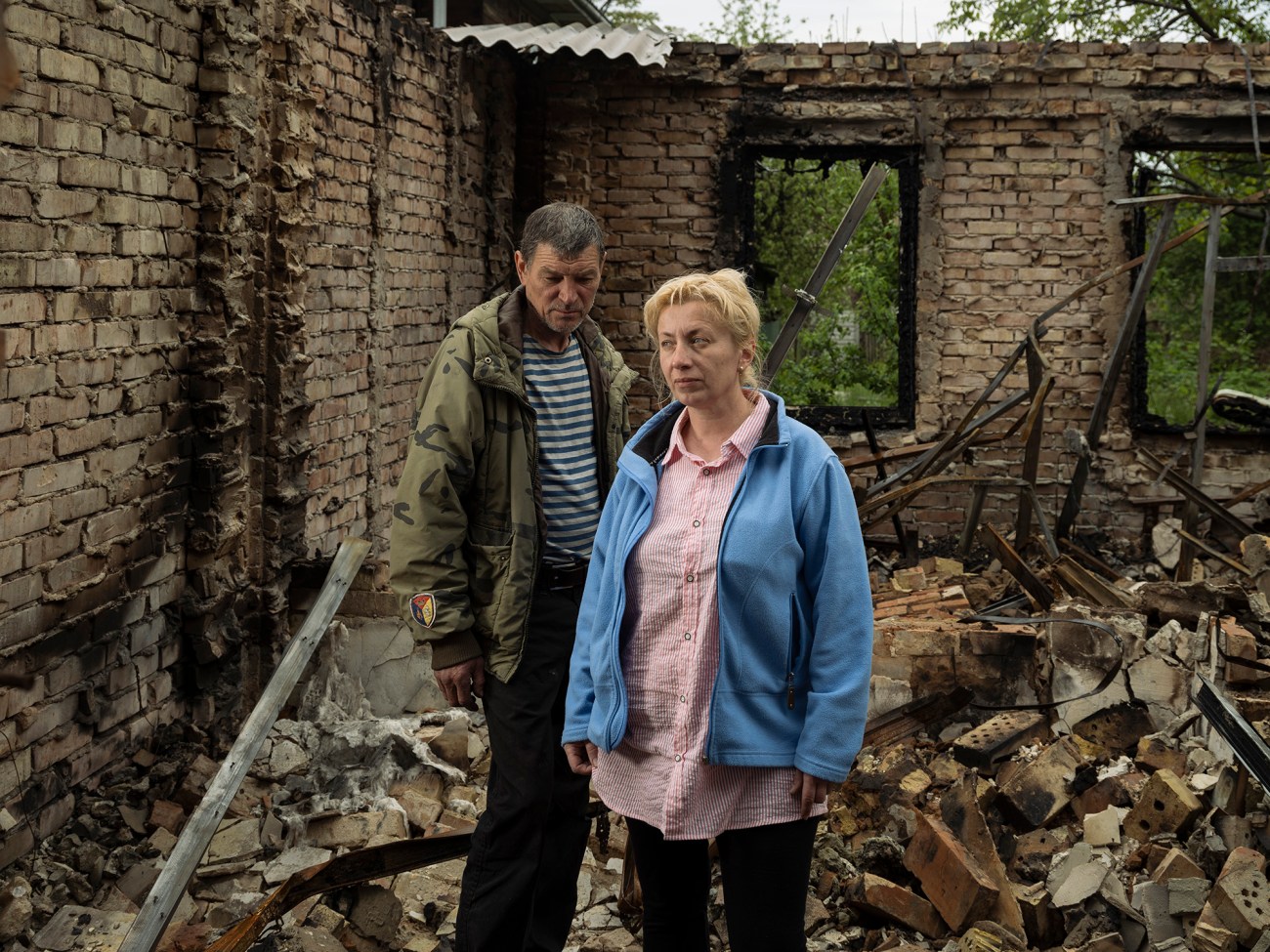
Igor Soshnev, 54 and his wife Oksana Soshnev, 47 at the site of their destroyed house in Irpin, Ukraine
Yulia
Yulia Nelubova, 44, a singer with the Veryovka Ukrainian National Folk Choir, bought her Irpin apartment for herself and her three children nine years ago. She was hoping to find some things intact, but everything had burned, including a wedding dress that belonged to her great-great-grandmother and a year’s worth of medicines for her oldest son, who is recovering from cancer and suffers from hepatitis B. “I couldn’t even cry anymore. I was just standing in the middle,” Yulia says of this image.
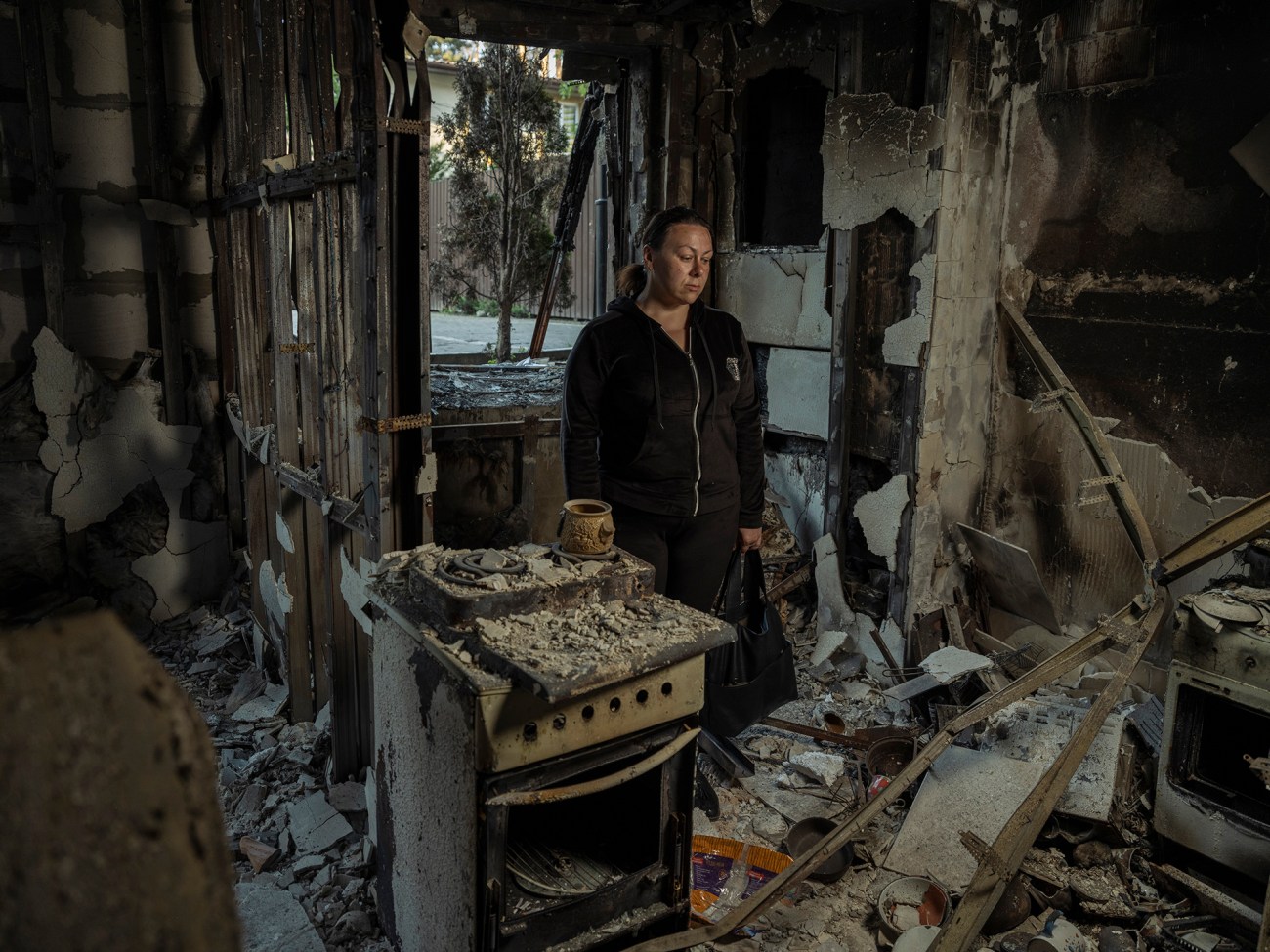
Yulia Nelubova, 44 in her apartment that was destroyed by Russian bombings of Irpin, Ukraine
Katya
Katya Baranivska, 22, stands in front of the apartment building where she grew up. “It’s very difficult to come back,” Katya says. “All our family memories, pictures, heirlooms—it’s all destroyed.” Her parents’ bedroom in their eighth-floor apartment is exposed like an open wound. The bed is still made.
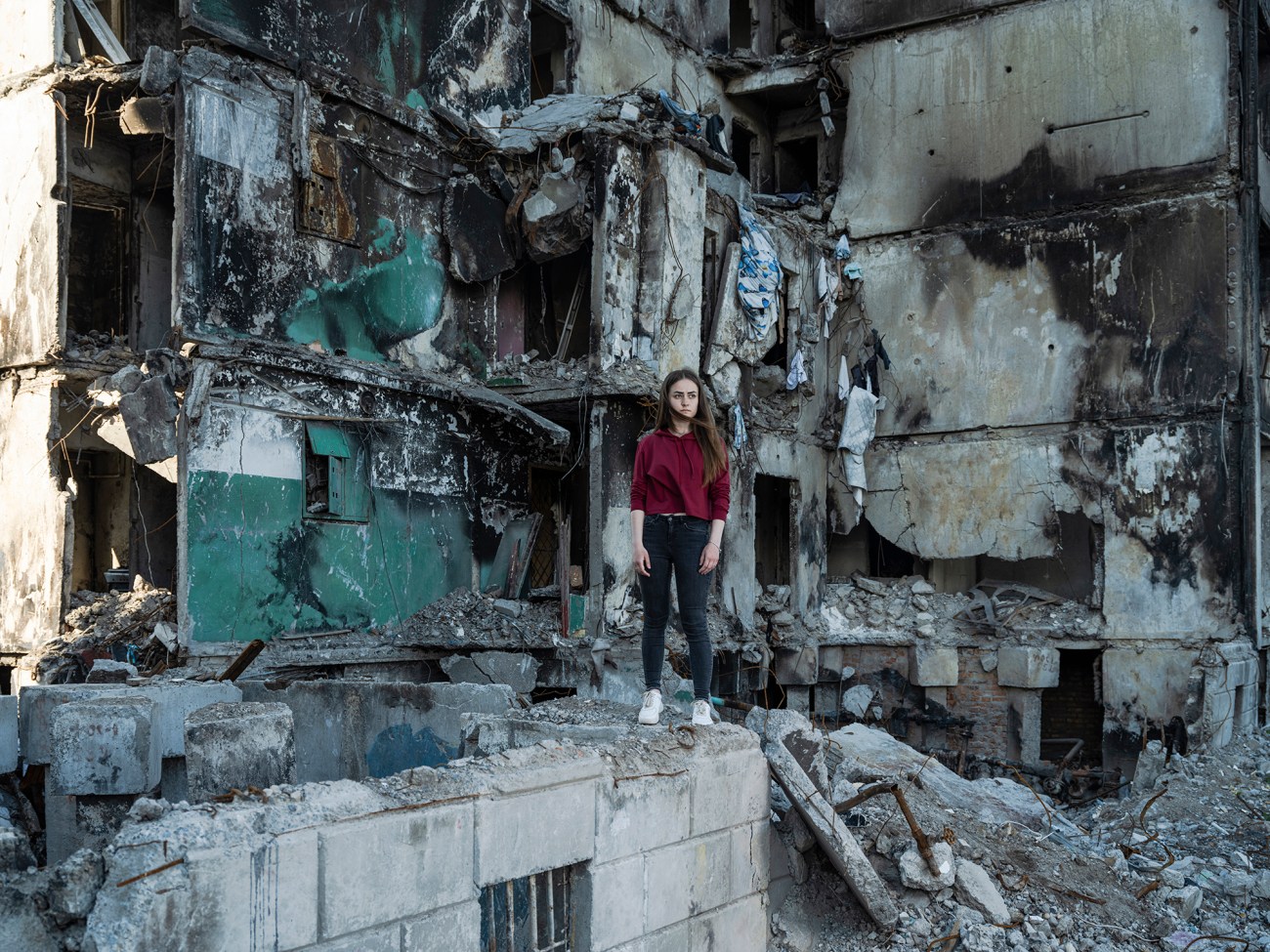
Katya Baranivska, 22 in front of the destroyed building where her family’s apartment used to be before it was destroyed by a Russian bombing. Borodyanka, Ukraine
